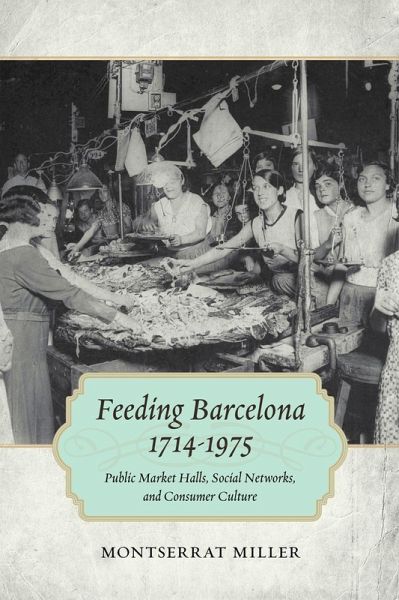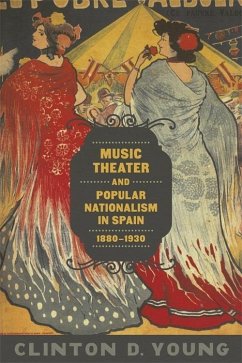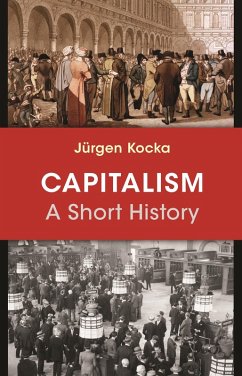
Feeding Barcelona, 1714-1975 (eBook, ePUB)
Public Market Halls, Social Networks, and Consumer Culture

PAYBACK Punkte
8 °P sammeln!
The food markets of Barcelona host thousands of customers daily, from tourists eager to sample fresh fruits and grilled seafood to neighborhood cooks in search of high-quality ingredients. While other countries experienced major shifts away from the public-market model in the twentieth century, Barcelona's food markets remained fundamental to the city's identity, economy, and culture. Montserrat Miller's Feeding Barcelona, 1714-1975 examines the causes behind the extraordinary vibrancy and tenacity of the Barcelonan market system. Miller argues that recurrent revolutionary uprisings in Barcelo...
The food markets of Barcelona host thousands of customers daily, from tourists eager to sample fresh fruits and grilled seafood to neighborhood cooks in search of high-quality ingredients. While other countries experienced major shifts away from the public-market model in the twentieth century, Barcelona's food markets remained fundamental to the city's identity, economy, and culture. Montserrat Miller's Feeding Barcelona, 1714-1975 examines the causes behind the extraordinary vibrancy and tenacity of the Barcelonan market system. Miller argues that recurrent revolutionary uprisings in Barcelona, beginning in the mid-eighteenth century, forced ongoing collaboration between the public and private sectors to ensure adequate and effective food distribution. Municipal support permitted small-scale food sellers in Barcelona to survive in a period more commonly characterized by increasing capitalization in food retail, while the importance of food markets to Barcelona's social networks enhanced vendors' ability to recognize and adapt to changing customer demands. In addition, a high number of stalls owned by women contributed both to the financial well-being of vendor families and to the sociability patterns that placed neighborhood food markets at the center of daily life in the city. The shared commitment of vendors, shoppers, and government officials to a market model of food sales created the lasting and unique market system that persists in Barcelona to this day. Drawing from extensive archival research and numerous interviews with individuals at all levels of the market system, Feeding Barcelona, 1714-1975 is the first detailed history of the historical and social influences that create urban food markets.
Dieser Download kann aus rechtlichen Gründen nur mit Rechnungsadresse in A, D ausgeliefert werden.













